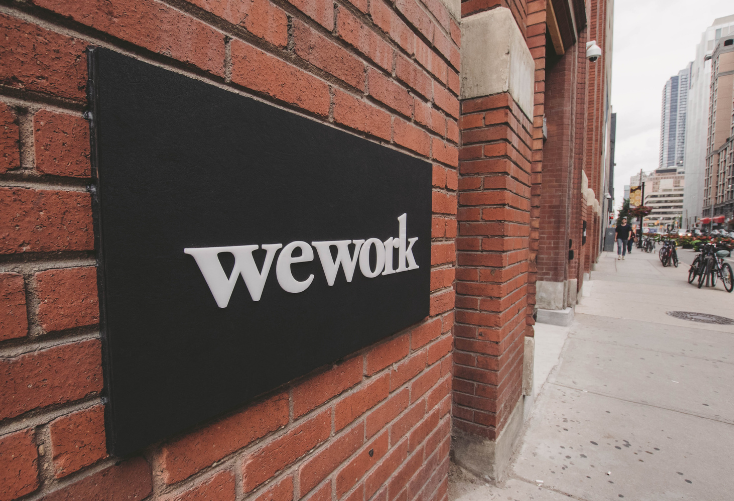Hand selected flexible workspace news from the most reliable sources to keep you ahead of the pack. We find all the latest news, so you don’t have to. Morning and afternoon updates. Stay in the know.
- Report Reveals Revenue Dip For Coworking Spaces
- WeWork Files Lawsuits Against D.C. And Boston Landlords
- The Future Of Remote Working
Report Reveals Revenue Dip For Coworking Spaces
A new report entitled “Coworking Spaces Global Market Report 2020-30: COVID-19 Growth and Change” has revealed that the global coworking industry is expected to take a dip in annual growth rate, from $9.27 billion in 2019 to $8.24 billion in 2020. This 12.9% decline is largely due to the economic slowdown caused by the ongoing pandemic and businesses opting for remote working practices.
However, the industry is expected to make a recovery and get to $11.52 billion in 2023 by compound annual growth rate.
For now, as employees continue to work from home, the commercial real estate industry has seen a big decrease in occupancy and footfalls. This has inevitably caused coworking revenue to drop over the past several months.
The report also revealed how the coworking industry will come out of the pandemic stronger than ever as companies look into adopting flexible offices to decrease the density of their main offices, while saving money.

WeWork Files Lawsuits Against D.C. And Boston Landlords
WeWork has filed a lawsuit against multiple landlords in downtown Boston and Washington D.C. The coworking firm is suing to recoup $18.7 million in reimbursements for unpaid renovations and tenant improvement bills.
WeWork is seeking $11.9 million in unpaid renovation costs in Suffolk County that it claims is entitled to from landlord Rockpoint Group. Additionally, the operator sued an affiliate for The Meridian Group for $6.8 million over tenant improvement allowances.
Currently, WeWork takes up three floors at the Rockpoint-owned 100 Summer Street in Boston. The company claims that its original lease with EQ Office allowed it to be entitled to $14 million in construction, of which it spent $13.3 million.
WeWork’s lawsuit against Meridian affiliate TMG 800 K Street LLC alleges that the $6.8 million in tenant improvement allowances it is seeking to be reimbursed was part of its 66,500 square foot lease at the Washington D.C. location.

The Future Of Remote Working
Companies large and small have been forced to shift to a remote workforce as the pandemic continues to impact many parts of the country. Now that the challenges of this sudden transition have mostly been ironed out, what can we expect from the future of remote working?
“Many individuals flourish working remotely, however, some are more productive working in an office environment that provides structure and camaraderie,” said Cindy Cooke, SVP at Colliers International. “As companies continue to embrace remote working, I anticipate changes in office designs, especially those that adapt to having fewer employees in the office at the same time and those that prioritize employee health and safety precautions.”
Technology integration has been and will remain key to conducting an efficient distributed workforce. This includes communication tools such as Zoom and Slack, as well as collaborative software that make sharing files simple.
“Our team used video conferencing systems to conduct our weekly pipeline meetings, speak to investors, and we hosted a webinar on the state of commercial real estate for our professional community,” said Russell Appel, founding principal at The Praedium Group.
Still, while such tools have made conducting business and communicating with colleagues easier during these unprecedented times, they do not fully replace in-person collaboration. Due to this, it is likely that businesses will continue to adopt remote work arrangements, but keep some form of physical office to accommodate in-person work-related needs.



 Dr. Gleb Tsipursky – The Office Whisperer
Dr. Gleb Tsipursky – The Office Whisperer Nirit Cohen – WorkFutures
Nirit Cohen – WorkFutures Angela Howard – Culture Expert
Angela Howard – Culture Expert Drew Jones – Design & Innovation
Drew Jones – Design & Innovation Jonathan Price – CRE & Flex Expert
Jonathan Price – CRE & Flex Expert












